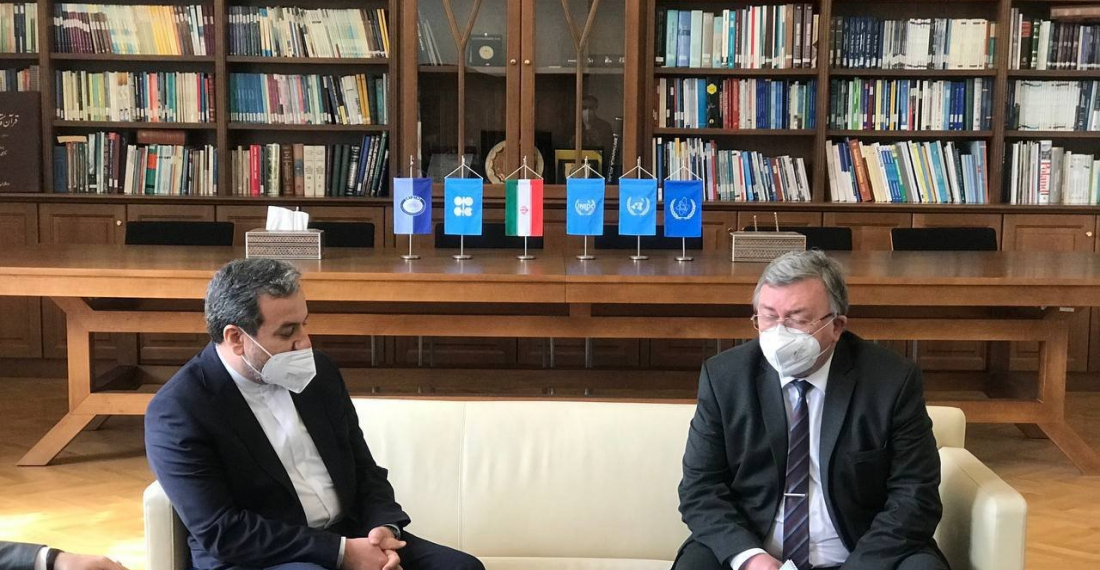Officials said on Monday (19 April) that Tehran and JCPOA partners have made some progress to revive the 2015 nuclear deal and that an interim agreement could be possible to buy time for a permanent framework.
Iran and the JCPOA countries have been meeting in Vienna this month to work on steps to bring back Tehran and Washington into full compliance. The track is supported by the International Atomic Energy Agency (IAEA) and the European Union.
"We are on track and some progress has been made, but that does not mean that the Vienna talks have reached the final stage," Iranian Foreign Ministry spokesman Saeed Khatibzadeh said at a weekly press conference in Tehran.
"Practical solutions remain elusive, but we have gone from public speaking to agreeing on certain steps towards the goal," Mikhail Ulyanov, Russia's representative to the UN's International Atomic Energy Agency, wrote on Twitter Monday.
The negotiations have entered the drafting phase as American signal their willingness to lift sanctions in exchange for assurances to reduces enrichment.
Biden's national security adviser, Jake Sullivan, said that the US will not lift sanctions unless there is clarity and confidence that Iran would return to compliance.
An Iranian official said that if a political agreement is reached on technical steps to lift all sanctions, Tehran may suspend uranium enrichment to 20 percent purity in exchange for the release of its funds held in other countries.
The negotiators in Vienna are currently focused on defining wider parameters for an agreement. All technical details and specifications of an agreement will be drawn out at a later stage. Iran refused to proceed until the issue of sanctions are addressed at once.







